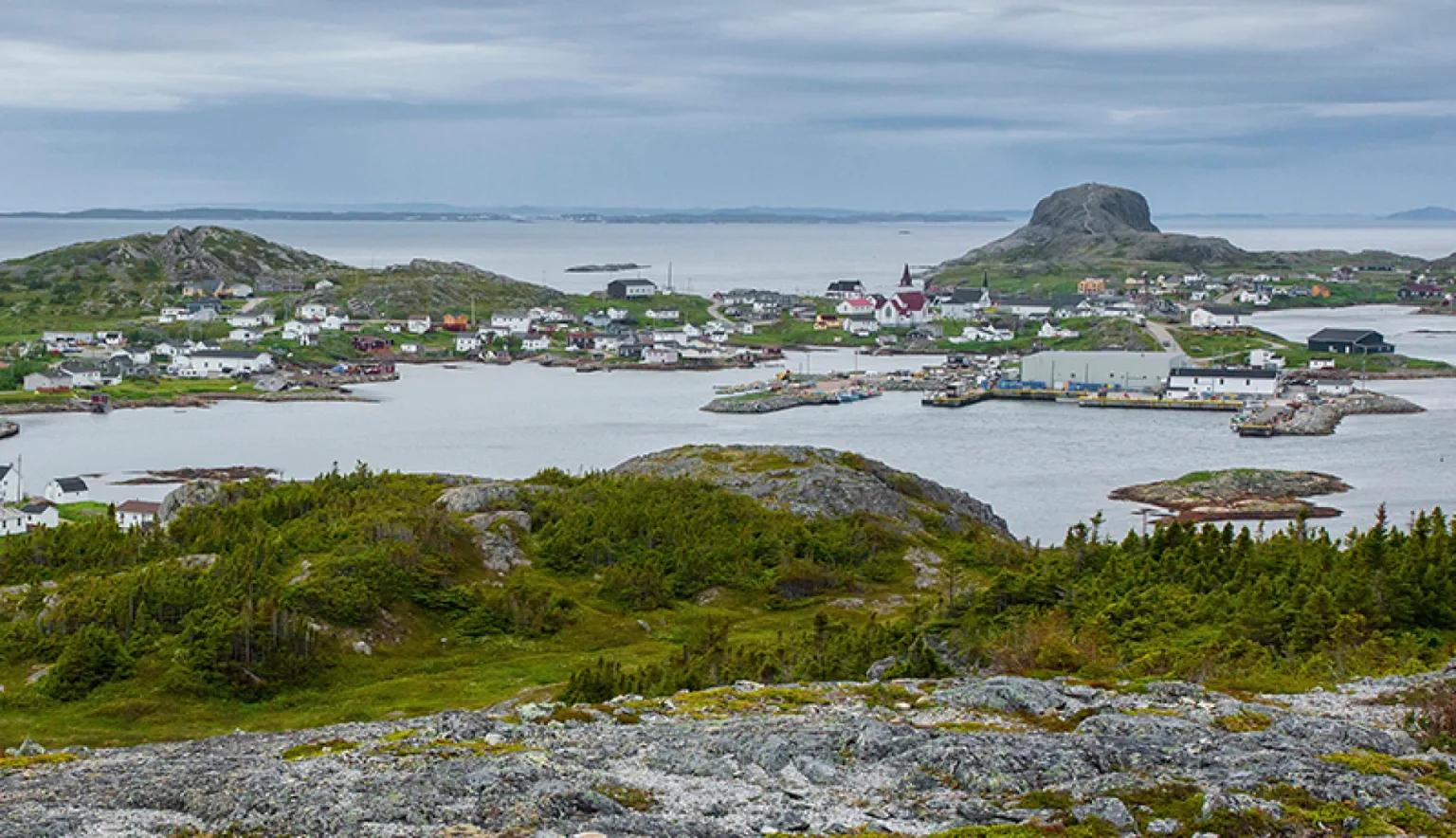Amidst the wild seas of the North Atlantic, Fogo Island is so remote that, according to the Flat Earth Society, this landmass represents one of the four corners of the Earth.
Fogo Island: 49.6667° N, 54.1833° W
Located to the east of the Change Islands, Fogo Island is the largest of the offshore islands surrounding Labrador and Newfoundland, Canada.
Although remotely situated and surrounded by the roaring Atlantic Ocean, Fogo Island is an accessible outpost that was originally populated by Irish settlers in the 18th century, beginning with the town of Tilting. English and Irish folk customs still abound from these original inhabitants, although their prevalence is now waning across Fogo’s 11 established settlements.
With a rich maritime history, fishing has long been the lifeblood of Fogo, in particular the shoals of cod that are a historic staple of both the local culture and economy. You will find colourful ‘stores’, or fishing sheds, dotted throughout the island. These teeming Atlantic waters also boast pods of whales that migrate here in the summer months and can be spotted breaching the waves offshore. Situated in what is colloquially known as ‘Iceberg Alley’, these waters are known for the icebergs that drift through here on their path between Greenland and Newfoundland between May and June.
Elsewhere, the sub-arctic climate supports thriving birdlife and myriad flora and fauna, including the roaming herds of Caribou that were introduced here in the mid-twentieth century. On land, a hiker’s paradise awaits with endless trails covering the wilderness, skirting panoramic ocean views and traversing jagged clifftops.
Aside from its natural splendour, Fogo Island is establishing a reputation as a cutting-edge destination for contemporary art. Artists flock here to hide away in modern studios, seeking inspiration from awe-inspiring landscapes. The Fogo Island Inn stands as an iconic structure on the island, a minimalist, Nordic-style building perched on stilts whose glass-fronted façade offers dramatic views out across the ocean.




















